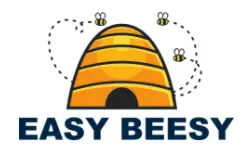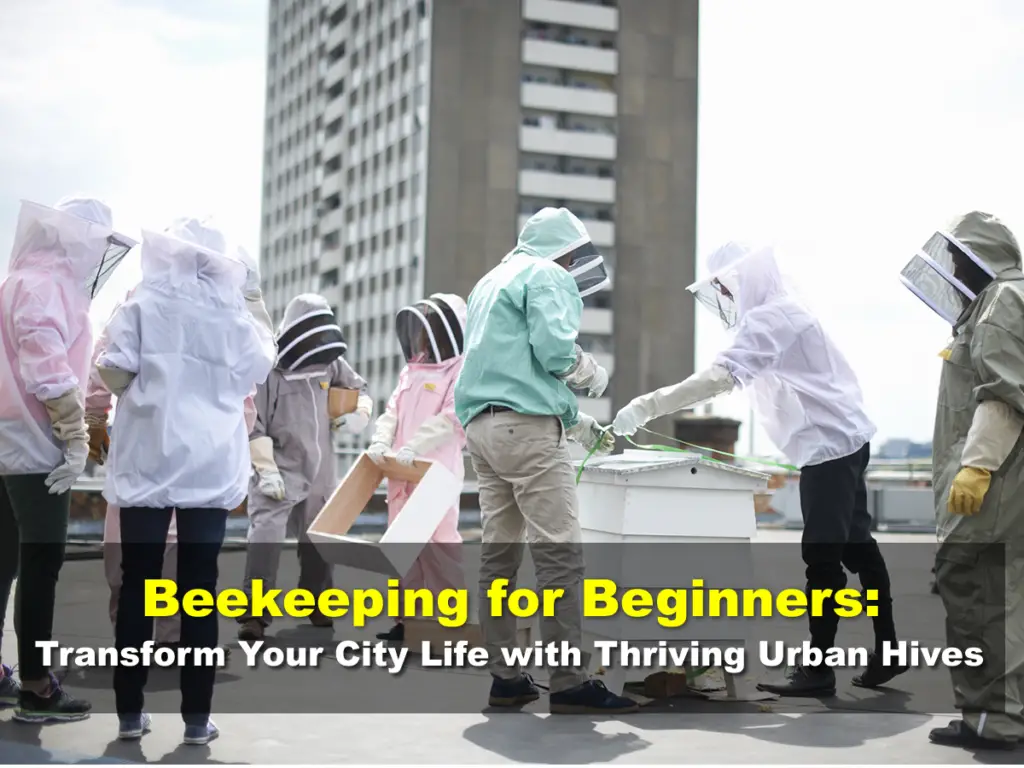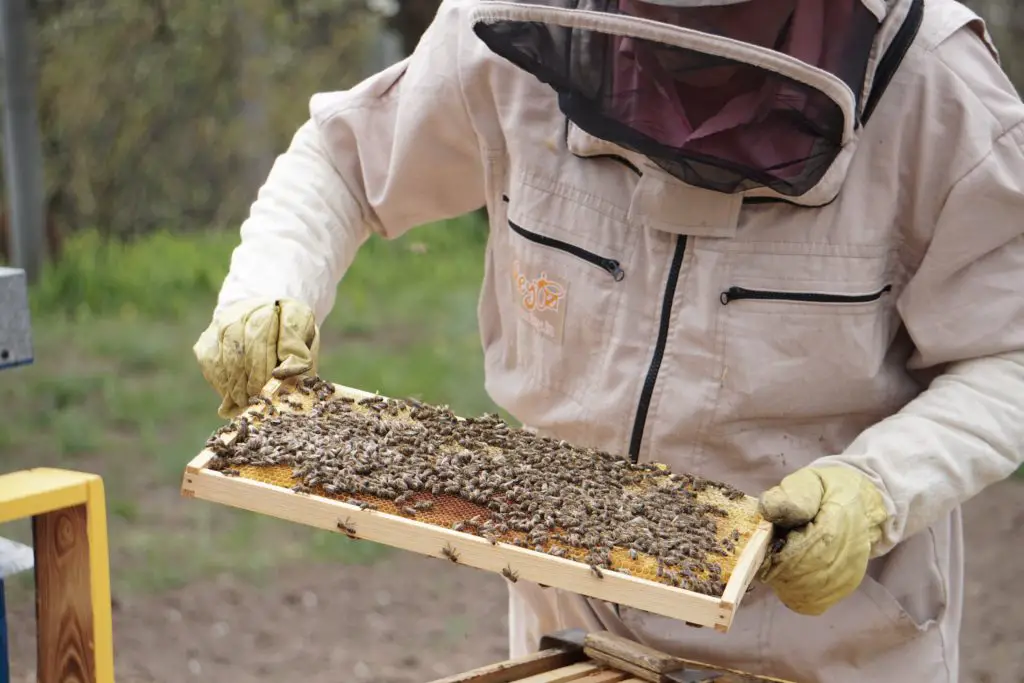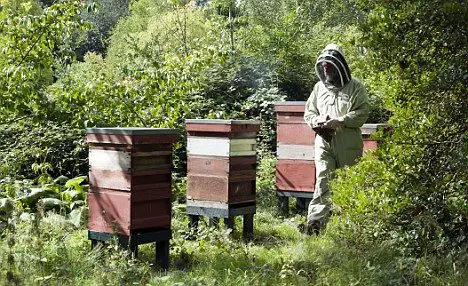Affiliate Disclaimer - As an Amazon Associate I earn from qualifying purchases.
It supports the website. So, Thank you
When most people think about beekeeping, they imagine a rural field filled with long grasses and wildflowers. A beekeeper who is fortunate enough to have a quaint little countryside cottage and all the time in the world to dedicate to his or her bees.
Yes, that sounds like an idyllic situation but you don’t have to be in rural bliss to have a successful beehive. In fact, owing to the importance of protecting bees, learning how to start urban beekeeping is something I’d encourage more people to get on board with.
If you’re right at the beginning of your urban beekeeping journey then this guide contains everything you need to know to get started.
Don’t Do Anything Until You’re Familiar With Local Laws
Around the United States, there may be different local regulations on keeping bees in an urban area. The last thing you want to do is invest money in starting a new hobby only to be told by the authorities that you’re not allowed to continue.
For this reason, I strongly recommend checking out local and state laws on beekeeping and making sure you adhere to any restrictions. Your local authority should be able to provide you with all the information you need or point you in the right direction.
Don’t Go Into Urban Beekeeping With False Notions Of Making Money
A lot of people start beekeeping purely as a hobby but there are others that want to turn it into a viable business. I’m not saying this isn’t possible but if you want to make big bucks by beekeeping then you’re going to need more than a single hive in an urban garden.
Those that are successful in the bee business usually have several hives and there are big farms and companies that have hundreds! You see, you have to leave some of the honey behind for the bees and a single colony isn’t likely to produce more than enough honey to sustain itself in the first year. After this, with a single hive, you may have enough honey for you and your family but it certainly won’t become a profitable business.
And Don’t Forget To Think About Start Up Costs
While you aren’t going to make any money from urban beekeeping, it can be a very enjoyable hobby for those that love nature and wildlife. However, you have to consider that there are some start-up costs.
Fortunately, it isn’t overly expensive to get started, especially if you’re only planning to set up one hive. Typically speaking, you’ll get away with spending just a few hundred dollars on the hive, the bees, beekeeping tools and other basic equipment. If you’re looking to save a little money then I would recommend checking out used beehives as this could save you a small fortune. However, do be mindful about what you’re purchasing to ensure it’s good quality and fit for purpose.
I wouldn’t suggest going all out and buying anything but the basics to begin with. For starters, you won’t be certain at this point that you’re even going to enjoy beekeeping much more, you can’t guarantee the survival of the colony. For this reason, I’d hold off buying equipment like honey extractors for now. If you follow one of my other tips and join a beekeeping club, you’ll probably be able to find someone to lend you this.
That said, I would also factor in the cost of protective clothing as you don’t want to become the victim of multiple bee stings. Honey bees are a docile species but keepers will experience stings when performing certain tasks simply because they could make the bees feel threatened and they’ll react to this by stinging.
What’s more, it is worth investing in protective clothing because, as a new beekeeper, you’re likely to be a little more nervous around your new winged friends. Bees can sense this alarm and again, they’ll react to it.

Consider Your Neighbors
In urban areas, it’s not uncommon to live in close proximity to your neighbors and if you’re bringing bees into the area then it’s common courtesy to let people know. Therefore, I would always recommend having a frank conversation with your neighbors and letting them be a part of your plans.
Most people won’t have an issue with you purchasing a hive but it also can’t help to offer them first dibs on your honey harvest to sweeten the deal.
Additionally, it can help to make sure that your yard is secured and properly fenced off. Yes, bees can fly but having high fences will ensure they’re flying overhead as opposed to flying at head height where they may become a nuisance.
Choose Your Bees Wisely
As I have mentioned, honey bees on the whole are a gentle species that won’t become aggressive unless they’re provoked. But as with any docile creature, you get colonies that are more angry than others.
Buckfast bees come highly recommended by experts for beginners as they’re one of the most laid-back species. What’s more, if you opt for a gentle species, this will work in your favor when you have that initial conversation with your neighbors.
I’d also recommend starting with two boxes of bees. While people typically buy just one box, there are risks in urban areas that might mean your colony doesn’t thrive. If this is the case, you’ll have more than enough bees to replace any that are lost and your colony will have more chance of succeeding.
Get In With Other Beekeepers
There are many more beekeepers in rural areas compared to urban ones but I’m pretty sure there will be some sort of local beekeeping club you can join. What’s great about this is that you can get local advice on keeping bees and you might even stumble across a generous individual with some spare equipment.
In the first year, it’s not uncommon for a colony to die but by having access to a wealth of information from experienced local keepers, you stand to have a thriving hive.
Final Thoughts
Starting beekeeping isn’t an obvious thing to do in an urban area but more and more people are realizing the importance of this in the city and suburbs. As long as you have space to keep a beehive and the small amount of time it takes to dedicate to your colony, there’s no reason you can’t get started (as long as you’re following local laws.)
Keeping bees in an urban area does come with its own set of challenges compared to rearing them in a rural setting but it’s perfectly possible. You just need to know what things to consider.




